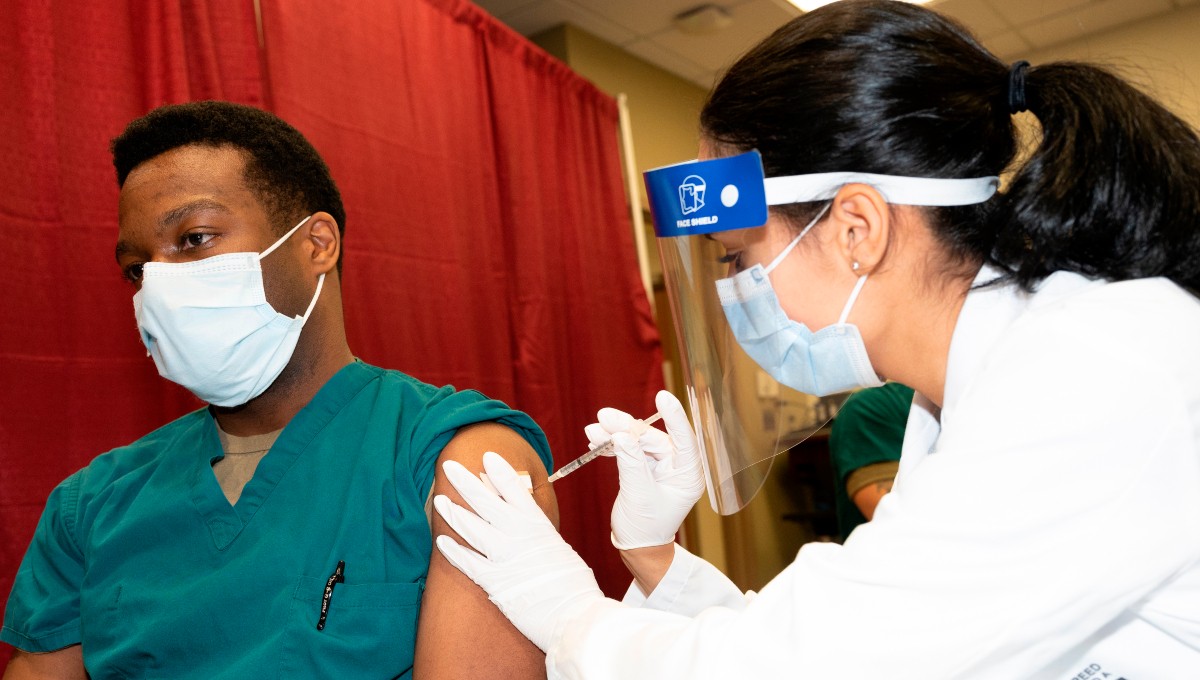Health
Experts debunk magnets in COVID-19 vaccine conspiracies [Video]

WHAT YOU NEED TO KNOW:
- Scientists refuted conspiracy theories claiming that COVID-19 vaccines contain metals or microchips.
- They presented numerous pieces of evidence to prove that such a claim is invalid.
- A Pfizer spokesperson said that their COVID-19 vaccine does not contain any metal ingredient.
Physics and health experts told Reuters that COVID-19 vaccines do not contain any metal or microchips that would enable vaccinated people to become magnetic.
The conspiracy theory emanated from a series of videos alleging that magnets were getting attached to the arms of vaccinated individuals. In one particular footage, a woman was able to attract a magnet in one spot of her arm where the vaccine shot was administered. In another video, a man revealed that his mother got Pfizer’s vaccine, showing that a magnet was attached to his mother’s arms.
Amid the rise of such viral videos, Reuters had already refuted the conspiracies about the COVID-19 shot having a ‘microchip’ ever since the start of the pandemic. The bizarre rumors were typically pointed against Billionaire and Microsoft co-founder Bill Gates.
All of the approved vaccines used in the US and the UK had no metallic content. A few drugs do contain a little amount of aluminum, but Oxford University scientists claimed that it was not hazardous compared to the small amount of aluminum ingredients obtained in drinking water and most foods.
Another credible argument is that, assuming that COVID-19 shots do have metals, they would still not cause a magnetic reaction. According to Meedan Health Desk experts, the quantity of metal “that would need to be in a vaccine for it to attract a magnet is much more substantial than the amounts that could be present in a vaccine’s small dose.”
They also said that we humans are naturally “a little bit magnetic” since we possess a little amount of iron. The combination of iron and water, though, will hold off magnets.
School of Physics Prof. Michael Coey from Trinity College Dublin called the conspiracy a “complete nonsense.” Speaking with Reuters via email, he said that it would require one gram of iron metal to hold and sustain a permanent magnet during the inoculation proper. Anyone could easily have it noticed if something like that kind of element is present.
“By the way, my wife was injected with her second dose of the Pfizer vaccine today, and I had mine over two weeks ago. I have checked that magnets are not attracted to our arms!”, he added.
In response to the “magnet challenge” claim of a pair who took the Pfizer shots, a Pfizer representative confirmed with Reuters that their vaccine had no metal ingredients, and that it could not yield a magnetic reaction after inoculation.
Source: REUTERS
